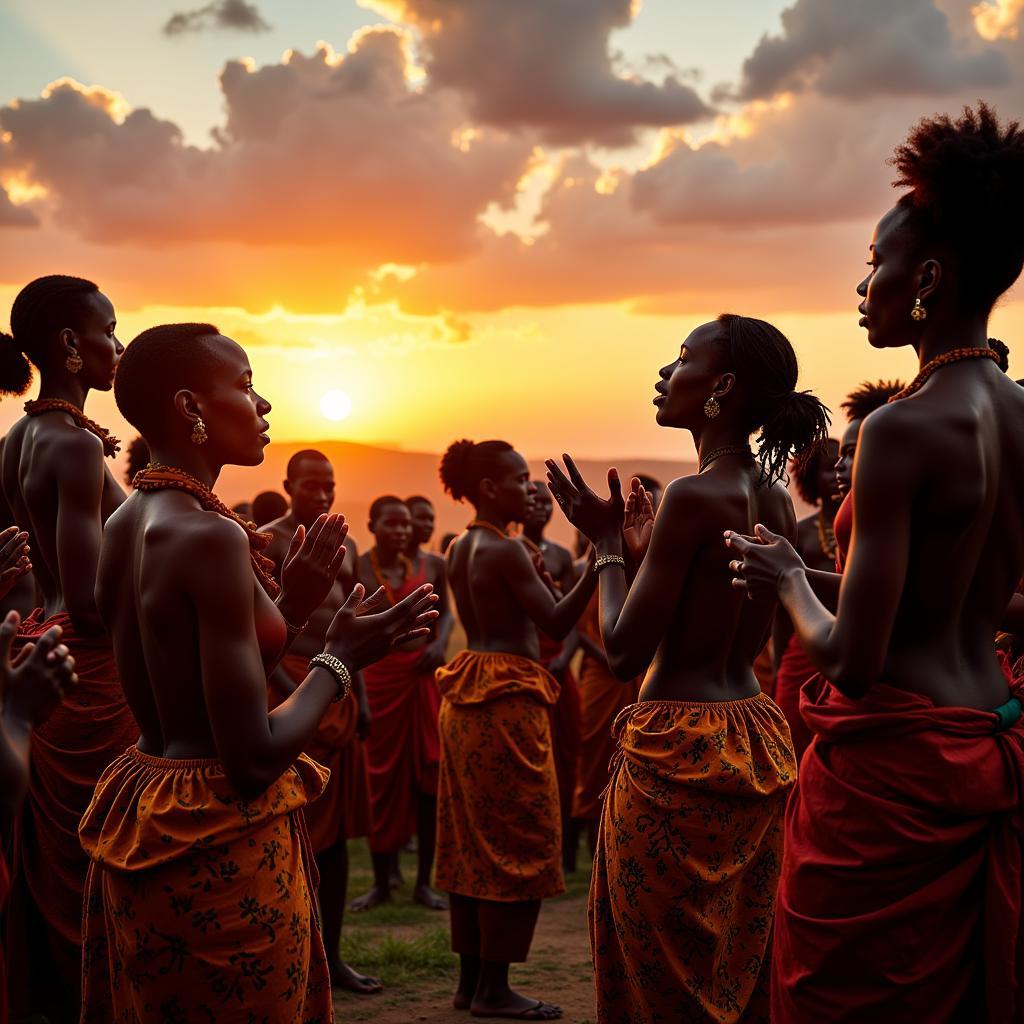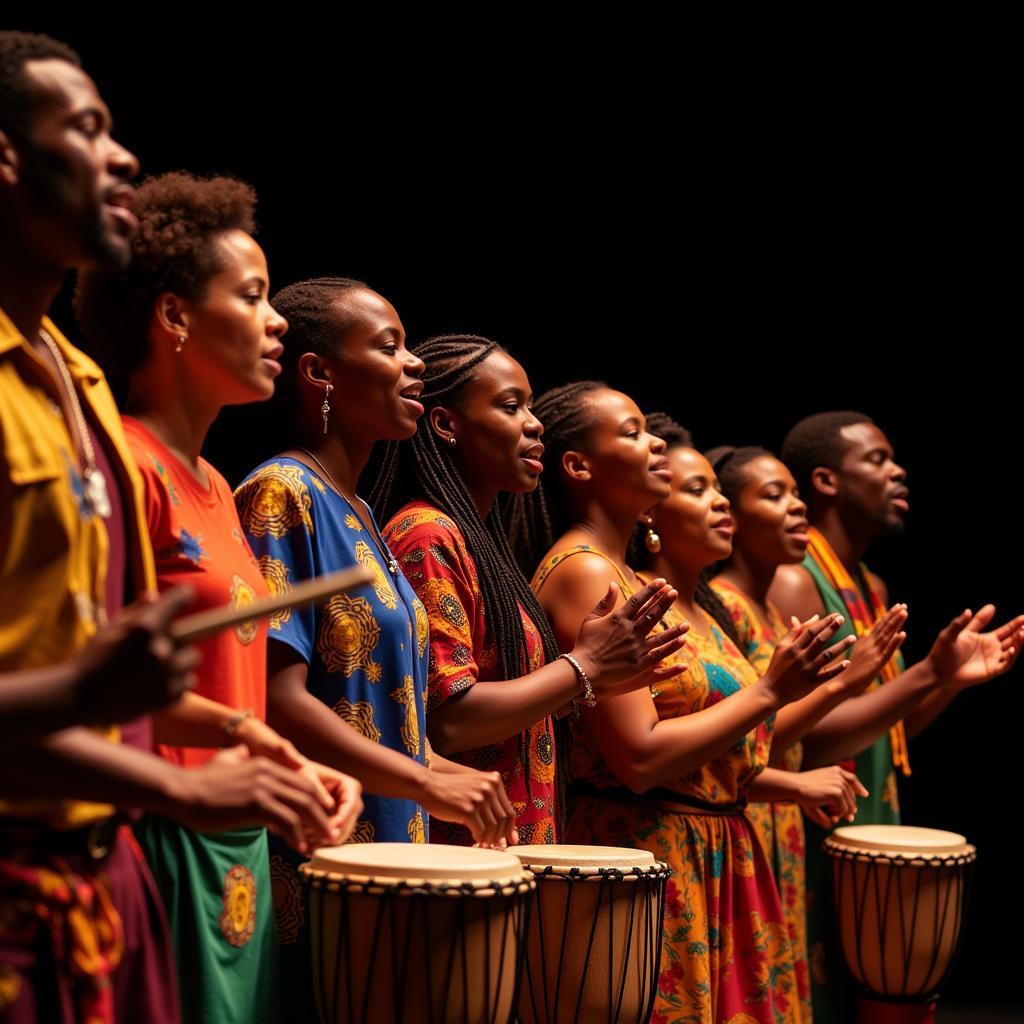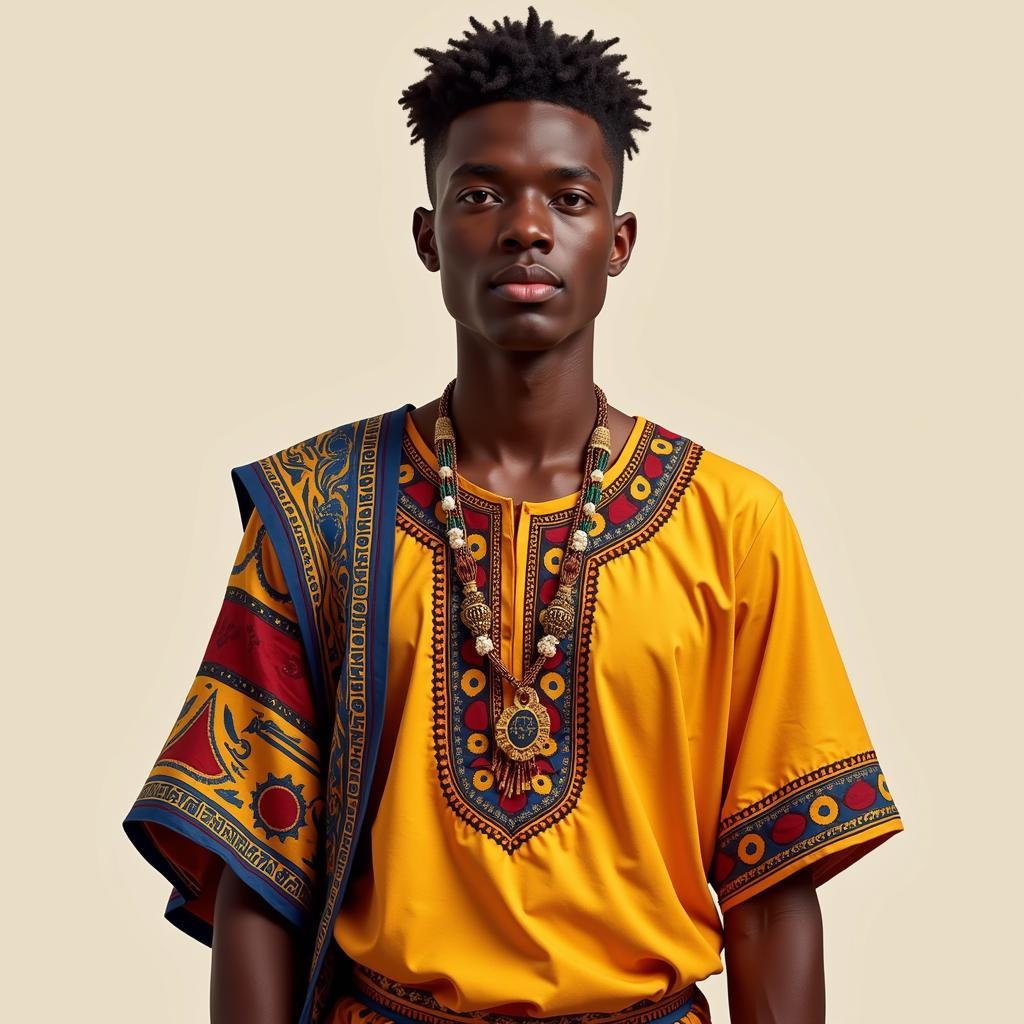Unveiling the Power and Poetry of African Chants Lyrics
African chants, with their mesmerizing rhythms and evocative lyrics, offer a captivating glimpse into the soul of a continent. Passed down through generations, these vocal traditions are far more than mere songs; they are living testaments to the history, beliefs, and aspirations of diverse African cultures. Let’s embark on a journey to explore the power and poetry woven into the fabric of African Chants Lyrics.
More Than Words: The Significance of African Chants Lyrics
In the tapestry of African musical heritage, chants occupy a sacred space. They are not confined to entertainment; they are tools of communication, spiritual expression, and societal preservation. African chant lyrics are imbued with layers of meaning, often serving as:
- Historical chronicles: Chronicling the lineages of kings, narrating epic battles, and preserving the memories of ancestors.
- Spiritual conduits: Conveying prayers, invoking deities, and facilitating communication with the spiritual realm.
- Social commentary: Reflecting upon societal norms, celebrating life events, and addressing injustices.
- Vehicles of knowledge: Transmitting wisdom, moral values, and practical skills across generations.
 Traditional African Chant Ceremony
Traditional African Chant Ceremony
Deciphering the Language of African Chants Lyrics
African chants lyrics are as diverse as the continent itself. Each language group, and often each community, boasts its own unique repertoire of chants. While the specific languages may vary, several common thematic elements run through African chants lyrics:
1. Call and Response: This dynamic structure, involving a lead vocalist and a chorus, fosters a sense of community participation and encourages active listening. The interplay of voices mirrors the communal nature of African societies.
2. Repetition: Recurring phrases and verses aren’t mere stylistic choices; they serve to emphasize key messages, induce trance-like states, and aid in memorization. This repetition allows for deeper engagement with the lyrics and their meaning.
3. Imagery and Symbolism: African chant lyrics are rich in metaphors drawn from nature, daily life, and spiritual beliefs. Understanding these symbols unlocks a deeper layer of understanding. For example, the lion might represent strength, the river, life’s journey, and the ancestors, guidance and wisdom.
4. Proverbs and Wise Sayings: Many African chants seamlessly weave proverbs and adages into their lyrical fabric. These concise sayings impart wisdom, teach moral lessons, and offer guidance on navigating the complexities of life.
 Group Performance of African Chants
Group Performance of African Chants
The Enduring Legacy of African Chants
Despite the encroachment of modern music genres, African chants continue to hold a place of honor in the continent’s cultural landscape. They are performed at:
- Rites of Passage: Birth ceremonies, initiation rites, weddings, and funerals all feature specific chants that mark the significance of these life transitions.
- Festivals and Celebrations: Chants provide the soundtrack to communal celebrations, reinforcing cultural identity and fostering unity.
- Healing Ceremonies: In many cultures, chants play a crucial role in traditional healing practices, invoking spirits and seeking restoration.
Exploring the Rich Tapestry of African Music
The world of African music extends far beyond the captivating realm of chants. To delve deeper into the diverse sounds and rhythms of the continent, check out these resources:
- Discover the vibrant world of African jazz artists list.
- Explore a comprehensive African American music timeline.
From the pulsating rhythms of traditional drumming to the soulful melodies of contemporary Afrobeat, African music continues to captivate and inspire audiences worldwide. As we listen to the evocative lyrics of African chants, we are granted a glimpse into a rich and vibrant cultural heritage that continues to thrive today.
